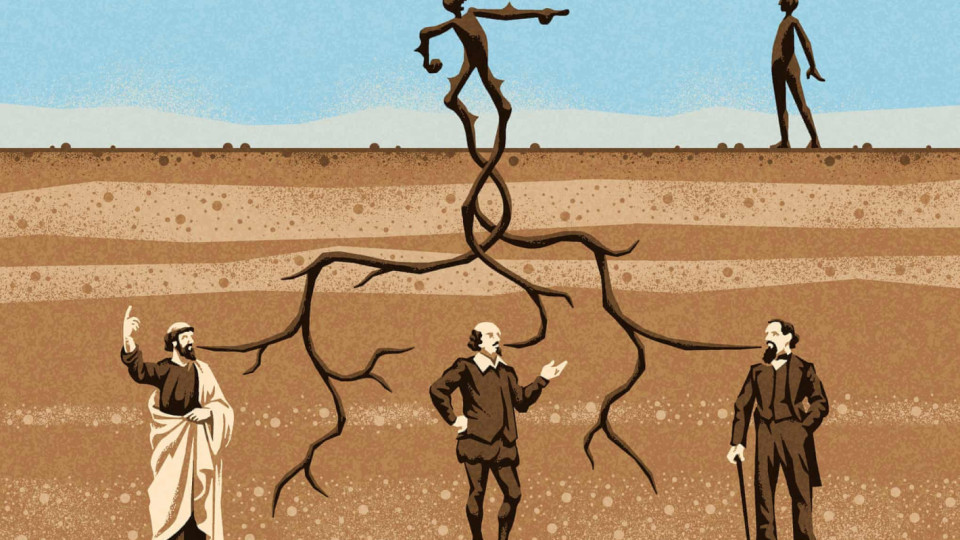
From Judas to Shylock, Jews have been blamed for the evils of profit and capitalism. To some leftists, that story still appeals

I’m reluctant to add to the workload of the Equality and Human Rights Commission, which this week announced the first step towards a statutory inquiry into Labour and antisemitism. If it goes ahead, it will be only the second time the commission has seen fit to investigate a British political party for racism – the first related to the BNP – and, given the number of complaints that have been reported, it’ll have its work cut out. Nevertheless, I have a research trip to suggest.
First, though, a word of context. An oft-heard defence of Labour is that a party of its now vastly increased size is bound to reflect the wider population; since that population includes some antisemites, then, sadly but inevitably, so will Labour. But that swerves around a gloomier possibility: that anti-Jewish racism might exert a particular appeal to some on the left – even, paradoxically enough, those who might otherwise proudly regard themselves as anti-racists.
John Harris deftly explained the point on these pages this week, writing that Labour has embraced a form of left populism that “tends to present the very real failings of modern capitalism not as a matter of anything systemic, but as the work of a small group of people who are ruining things for the rest”. Such thinking immediately invites a question: who, exactly, are these people who have wrought such havoc? Who makes up this wicked cabal? Antisemitism is there to provide an answer, the same answer it has provided for so long and in so many places: the Jews.
That Momentum recently felt the need to produce a video urging its members not to be seduced by the age-old conspiracy theory that the Rothschilds secretly rule the world confirms that a certain kind of leftist – one who blames capitalism’s deformities on evil individuals, rather than structures – can be susceptible to the lure of antisemitism. But that should scarcely come as a shock, especially in the western societies of Christian Europe, including – perhaps especially – Britain. For in these societies capitalism – money – has always been linked to, even deemed synonymous with, Jews.
Hence my suggestion of a research trip. On 19 March, the Jewish Museum London will open an exhibition both fascinating and deeply unsettling. It’s called Jews, Money, Myth, and it makes clear that the tendency to connect Jews and money is a habit centuries – indeed millennia – old.
Perhaps you’d be unsurprised by the 20th-century examples, including the grotesque caricatures of rich, fat Jewish bankers controlling the globe, sometimes rendered as repulsive, multi-legged, insect-like monsters. (The equality commissioners might be struck by the echo here of the image that Labour officials deemed unworthy of sanction when shared by a party member: it showed an Alien-style creature, marked with a Star of David, clamped to the face of the Statue of Liberty.)
Entering the Victorian era, the casual visitor might nod with similar familiarity at the nutcracker in the shape of Fagin, Charles Dickens’s miserly Jewish pickpocket, a reminder that Jews were mocked for being both too poor and too rich, caricatured as both beggars and bankers, pedlars and plutocrats – a premonition of their later fate, to be blamed for both communism and capitalism. Even so, some of the cartoons might still shock in the ugliness of their depictions of Jews as more akin to rats or insects than people. You head back 400 years and think, “Of course, Shylock” – Shakespeare’s Jew who says, “I did dream of money-bags tonight.” Back through the centuries you go, to the York massacre of 1190, which left an estimated 150 Jews dead, thanks to mob violence stirred by one Richard de Malbis, filled with resentment at the Jews to whom he owed money.
You keep going until you find yourself at Judas, ready to betray the son of God himself for “30 pieces of silver” – a phrase that lives on, incidentally, in social media posts hurled at Jews or their defenders. Now, of course, all the 12 disciples, like Jesus himself, were Jews – yet, as this new exhibition shows, it was Judas who western art chose to depict as the Jew, often with the red hair that marked him out as a betrayer, alongside his mysteriously fair-haired, fair-skinned fellow apostles. The power of the Judas story lives on: Judas a byword for traitor, the word Jew and Judas almost indistinguishable in several languages, including German.
The historical explanation for this enduring linking of Jews and money is that Jews were pushed into financial roles by a church that barred Christians from, say, lending money for interest, and barred Jews from doing much else, such as owning and farming land. As Anthony Julius – whose Trials of the Diaspora is the definitive history of English antisemitism – puts it, in a feudal society in which Jews could be neither peasants nor lords, there was “no other niche” available. But psychological explanations also suggest themselves, starting with the notion that Christian society was able to split off that aspect of itself it regarded as sinful – its pursuit of wealth and profit – and project it instead on to a hated other: the Jew.
Whatever its origins, the archetype of the avaricious Jew acquired its place in the culture. It can operate at the level of playground insult – “Jew” as a synonym for stinginess – and at the level of global conspiracy theory, with Jews, or “Rothschilds”, the hidden hand pulling the strings of world capitalism and its necessary corollary, imperialism. It is planted deep in the soil of western civilisation, in Britain, the land of Fagin and Shylock, especially. It is deep enough to shape our thinking – there to be reached for when a crisis, such as the 2008 crash, requires an easy, explanatory villain – but also so deep that it is almost buried, out of sight.
The result is that sometimes we can’t even see it, even when it is right in front of us. Recall that Jeremy Corbyn’s first response on hearing that the notorious mural depicting Jewish bankers playing Monopoly on the backs of the poor was to be removed, was to ask, “Why?” He literally could not see the problem. (An image of that mural will be included in the exhibition, alongside other examples of antisemitic depictions of supposed Jewish power.)
Given the 2,000-year-old history of this equation between Jews and the wickedness of money, it is absurd to imagine any one of us would be immune to it. Inevitably, plenty of Jews have themselves internalised it – including no less than Karl Marx, whose writings are peppered with anti-Jewish sentiment, who referred to money as “the jealous god of Israel”, and who looked forward to “the emancipation of mankind from Judaism”.
It is equally absurd to think that merely announcing yourself as an anti-racist automatically inoculates you from this history. It doesn’t. Instead it has to be brought into the open and confronted. But first we have to admit that it’s there.
The Guardian











Leave a comment